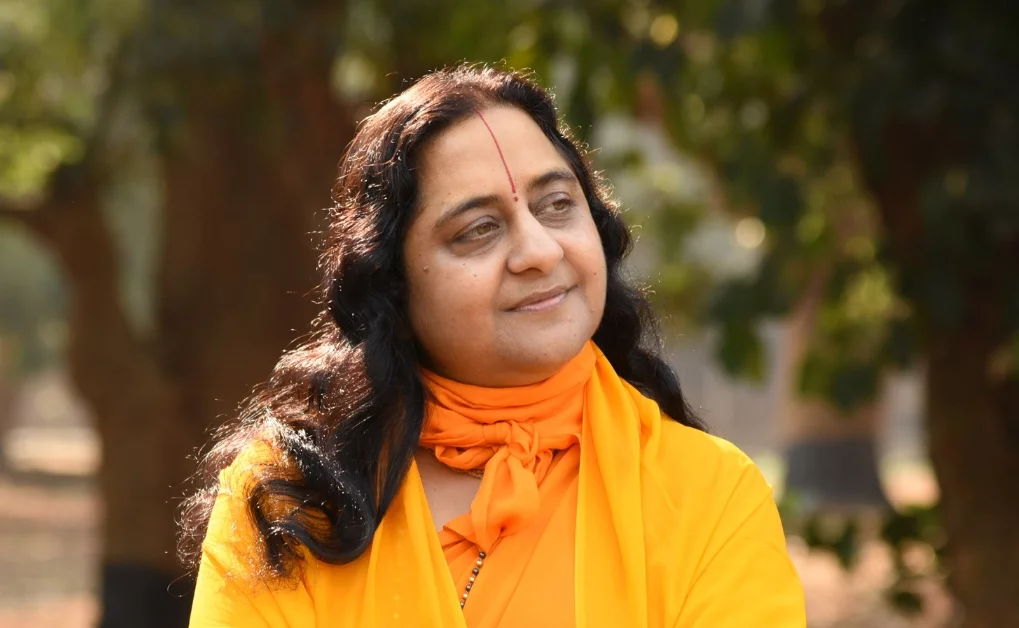What should we eat?
- H.H. Raseshwari Devi Ji

- Oct 14, 2022
- 3 min read
Updated: Jan 29, 2025
It is said, "What you eat, is what you think". Then how to wisely choose our diet, to lead a healthy and efficient life?

Our lifestyles are killing us. We have been mostly successful in taming infectious diseases, leading to an increase in lifespans. The problem lies with non-communicable diseases such as diabetes, cardiovascular and respiratory diseases, cancers, and obesity, to name a few household words these days. As if this were not enough, we have created a whole new world of emotional and mental issues for ourselves.
We are doing great harm to our bodies and minds, but the real damage is spiritual. Take, for example, our food habits. Approximately 8% of the world's population identifies itself as vegan or vegetarian. This means, at least 92% of people eat food which involves the killing of animals.
Whether this means butchering poultry, fish, or animals (in some countries, reptiles as well!), it entails killing defenseless creatures that have emotions and feelings. These creatures respond to affection; they show gratitude, care for and protect their young, and exhibit grief. Do you think any good can come from consuming the flesh of such creatures?
Mind you, there are exceptions to this rule. If you are marooned on a small island in the sea, and there is no other food except fish, it okay to eat fish. While killing fish for food is a sin, it is a greater sin to destroy the priceless human body by starving. But these are exceptions; it is unlikely that we will ever find ourselves in such desperate situations.
The problems are not limited to flesh-eating; it is not as if vegetarians are perfect in their food habits. When to eat, how much we eat, and what to eat, we are doing poorly in all these aspects. We will not go into what the Vedas and scriptures advise about this; these days, people demand 'proof.' So, let us see what science has to say.
For once, there is near unanimity in the scientific community about what makes up nutritious food. Scientists have scanned parts of the globe where people live exceptionally long, places like Sardinia in Italy, Okinawa islands in Japan, and the Nicoya Peninsula in Costa Rica. What do the good folks have in common? They eat a plant-based and predominantly vegetarian diet.
Vegetables, fruits, whole grains, beans, lentils, nuts, and seeds form the bulk of these regions' long-living people's diet. Not only do these folks live longer, but they also have healthier lives. Scholarly research shows little to be gained and much to be lost from consuming foods derived from animals.
What is the situation on the ground? Studies in the USA show that the average American gets 34% calories from animal-derived foods, only 6% from vegetables, and less than 3% from fruits. And we are not even going into the harm we do to ourselves by gorging on unhealthy, processed food.
The second aspect of food–how much should we eat? Apart from the few places remaining where getting food is an issue, most of us face a problem of plenty. We overeat food, and mostly, of the wrong kind. We don't need research papers from top research universities to be convinced of this. We know we are doing so, and this has serious consequences. It is easy to overeat because the temptation to indulge is everywhere.
Fast food, snacks, parties, online food services, sugary drinks - the stuff is everywhere. They spend billions on TV ads to tempt us, and it works–for them. Enter any supermarket, and you will see junk food displayed prominently. An interesting fact–have you noticed where they keep the chocolates? They keep them on the lower shelves, which are hard to see for us. You may ask, why do they keep chocolates that low?
The point is, they are not targeting you; they are targeting your kids. And they keep the sugary stuff at their eye-levels. There are endless side effects to overeating, and we will not go into that here.
The third aspect of food–what are the times of day ideal for eating? Most people seem to nibble at foodstuffs at all hours of day and night. But what is the best time to eat for the human body? There is a lot of evidence to suggest that eating according to the circadian rhythm. In plain words, eat during the day and fast at night. What is the 'normal' pattern for most? Dinner is usually the largest meal, and it not unusual for people to eat close to midnight!
Note: If you have any spiritual queries, feel free to ask. Devi Ji may answer your query as a blog post here. Send your query to,
Mail: mailbgsm@gmail.com
Whatsapp: 8280342310
You may also like:





















Comments